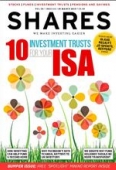Archived article
Please note that tax, investment, pension and ISA rules can change and the information and any views contained in this article may now be inaccurate.
Why some private equity trusts could be attractive in the short-term

The private equity market is in an odd position. It is awash with money ready to invest, thanks to a strong period of asset realisations over the last few years plus strong support from investors wanting to back new private equity deals.
Unfortunately there is a lot of competition for assets because the industry is desperate to do more deals. That in turn is pushing up valuation multiples for investments and forcing some private equity funds to be more selective.
In what should be a bumper period for the industry, given its financial firepower to do deals, private equity now faces two problems.
It either pays up for deals and potentially makes a lower return than it would have previously enjoyed; or it does fewer deals which could have a negative effect in five to seven years’ time (being the typical holding period for private equity) when the number of asset realisations is potentially lower than in recent years.
All this suggests the long-term gains from private equity may be less attractive. However, the sector is still worth a look on a shorter-term basis. Indeed, a few private equity themed investment trusts are even trading on wider than normal discounts to net asset value (NAV).
Among direct private equity investment trusts, shares in Apax Global Alpha (APAX) at 138p are now trading on a 14% discount to NAV versus a 12-month average discount of 6.8%, according to data from financial services group Winterflood.
In the private equity fund-of-funds space, HarbourVest Global Private Equity (HVPE) is trading on a 20.2% discount to NAV (based on a £12.10 share price) versus an average of 16.1% over the past 12 months.
At 323p, Standard Life Private Equity (SLPE) is trading at 13.7% below NAV, a bigger discount than its 10.9% average over the past year.
Standard Life’s investment trust stands out for two particular reasons. Firstly fund manager Roger Pim says valuations for new investments in the mid-market space aren’t as excessive as ones in the large cap arena. Secondly, its portfolio looks ripe for
near-term asset realisations.
Standard Life Private Equity may use some cash from realisations to maintain investment levels elsewhere under something called an
‘over-commitment’ strategy.
Just over one quarter of its portfolio is represented by investments that are now five years or older. Based on historical holding periods for the industry, these investments could be sold in the next year or so, events which could help to drive up net asset value and thus the share price.
‘The (fund) manager comments that they continue to see c. 25% uplifts to valuations when portfolio companies are exited,’ says research group Kepler. (DC)
Important information:
These articles are provided by Shares magazine which is published by AJ Bell Media, a part of AJ Bell. Shares is not written by AJ Bell.
Shares is provided for your general information and use and is not a personal recommendation to invest. It is not intended to be relied upon by you in making or not making any investment decisions. The investments referred to in these articles will not be suitable for all investors. If in doubt please seek appropriate independent financial advice.
Investors acting on the information in these articles do so at their own risk and AJ Bell Media and its staff do not accept liability for losses suffered by investors as a result of their investment decisions.

 magazine
magazine








